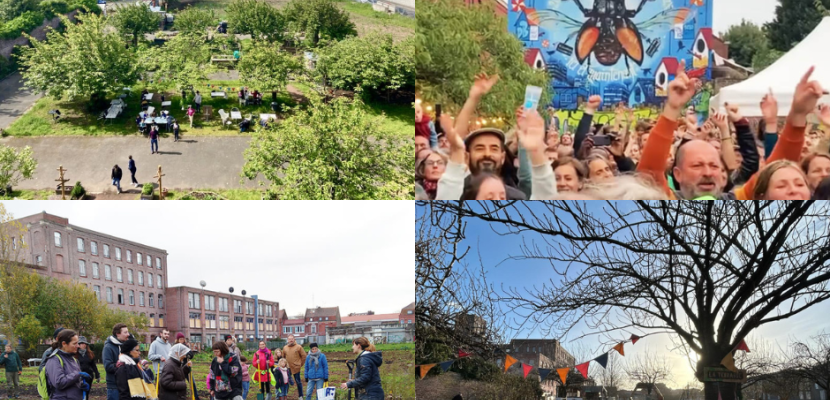
Renewing ideas, resources, and the city, revitalising brownfield sites in Roubaix

About this good practice
The Roubaix area, located in the north-east of the Lille metropole, is marked by a significant number of vacant and derelict sites scattered across its landscape. This presents a multitude of challenges for the city, including rapid neighbourhood deterioration and loss of attractiveness.
Focusing on creating a more efficient city in terms of life quality and sustainable development, the Roubaix urban development project aims to restore value to brownfield sites, enhance their attractiveness, create jobs and reduce spending constraints.
Five operational levers guide the action: the creation of an endogenous structure for activating brownfield sites (Eco6TM), an e-logistics and e-commerce demonstrator, a resilience cluster promoting empowerment and entrepreneurship, a craftsmen's platform for re-use, and a self-harvesting urban market-gardening farm.
Stakeholders include the Metropole Européenne de Lille, the City of Roubaix, and SPLA La Fabrique des Quartiers and the main beneficiaries are residents, local businesses, and the community.
The goal is to help local residents gain improved living conditions, reduced spending constraints, and increased economic opportunities. The innovative approaches foster social cohesion and empower communities, aligning with the goals of the NPNRU.
Resources needed
7,1M€ (perimeter PIA), of which 2,5M€ PIA subsidy
Evidence of success
While the evaluation framework of Roubaix practice is ongoing, the existing framework for the MEL's NPNRU provides insight into its potential success. The goal is to create an eco-friendly city with improved living standards, linking economic development and social inclusion and generating jobs. Indicators to measure the attractiveness of the area and the living space of households have already been included in the ongoing evaluation.
Potential for learning or transfer
The revitalisation of brownfields is a central theme in many cities across Europe. The revitalisation of polluted and post-industrial areas can be inspired by the activities of the EPF (Etablissement Public Foncier) of the Haute de France Region. Interest might extend to exploring opportunities to ecosystemic services associated with new green areas, and strategies for promoting and incentivising them.
Urban farming is one of these services, implemented in Roubaix: occupation and use agreements, used in this case, can offer insights beneficial for other cities, providing knowledge on their structure, regulation, and facilitation through public policies and norms.
